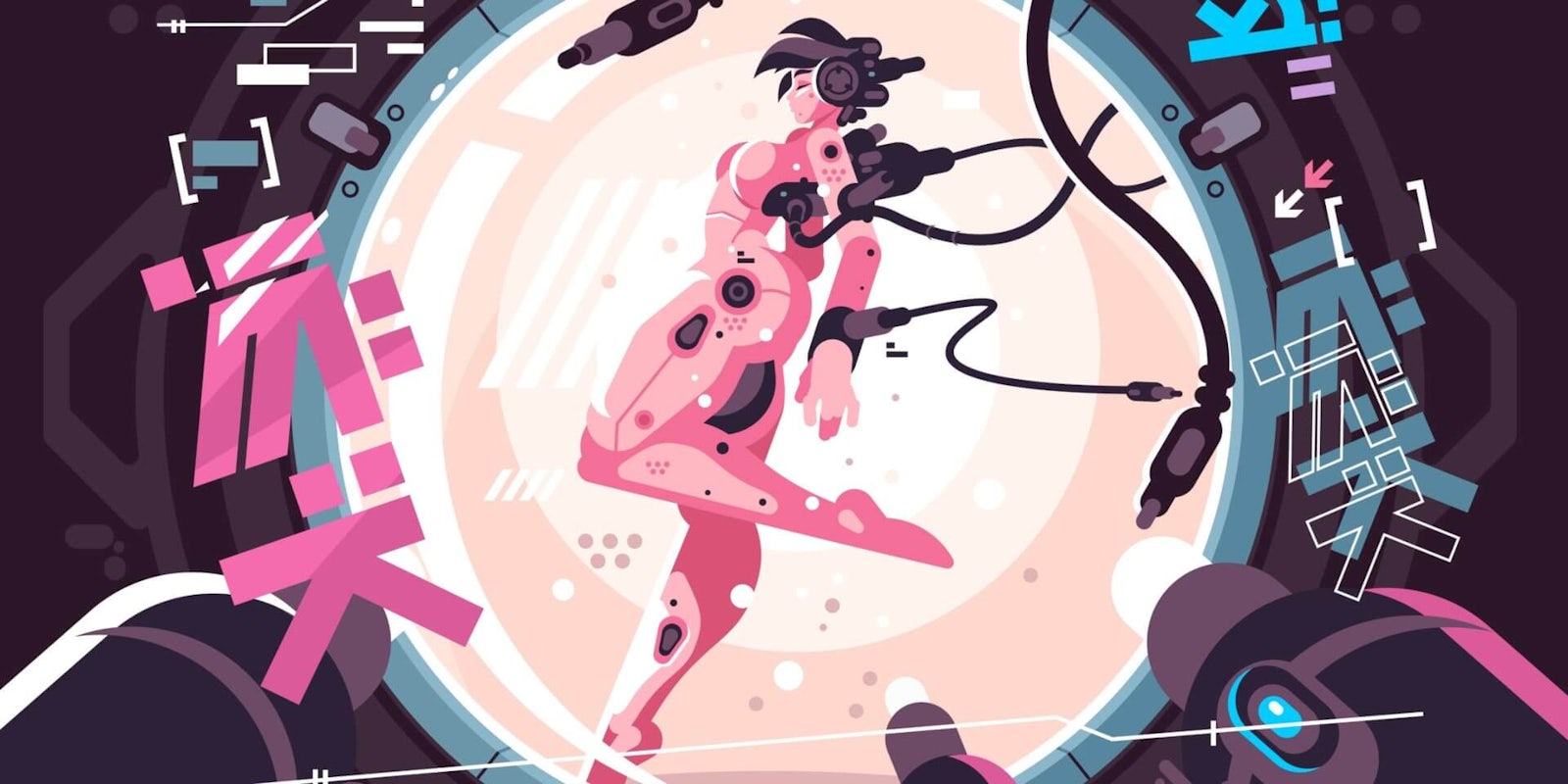Are you AI-amorous? Think carefully before you answer. This week’s newsletter from Sextechguide reveals humans empathize with robots. That means, yes, we might be able to fall in love with them.
In the report, Sextechguide broke down a 2015 study from Nature on empathy in humans toward robots. Researchers from Germany and Japan studied the brain activity of 15 participants who were viewing photos of humans and robots experiencing both painful and non-painful scenarios. While empathy emerges differently toward humans and robots—an inability to see from a robot’s perspective seems to “modulate the top-down controlled processes of empathy for pain”—humans experience relatively equal empathy responses when a robotic humanoid hand is placed in a painful scenario. In other words, research shows people “attribute humanity to robots and feel their pain,” at least when the robot has a human-like appearance.
“This study provides the first physiological evidence of humans’ ability to empathize with robot pain and highlights the difference in empathy for humans and robots,” the report notes.
Another study at MIT found a similar response. When asked to torture an animatronic toy dinosaur called Pleos, participants “can’t bear to do it and can’t watch when others do, even though they know Pleos can’t feel anything,” the Daily Beast’s Joelle Renstrom reported. “The more affection someone feels for an object or a robot, the stronger the tendency to anthropomorphize becomes.”
It’s unclear whether humans could build sustainable, long-lasting romantic relationships with gynoids, androids, and other kinds of robots. But people are already falling in love with their virtual AIs. A 2018 story from the Guardian explores mobile app game Mystic Messenger’s realistic virtual personalities. The characters’ lifelike responses and emotional needs make them lovable partners, even though they aren’t real people.
“When I met [Mystic Messenger character] Saeran my world changed,” one player told the Guardian. “I felt that he was talking to me and me alone. I felt interesting and needed.”
This happens because of attachment theory, a process of interpersonal bonding that can also extend to objects, such as computers. In 2015, robot researcher Elizabeth “Beth” Phillips introduced the theory’s application to human-robot relationships at the Future Is Here Festival. Once creators understand how to design artificial intelligence with emotional intelligence, she claims, romantic and sexual relationships with robots will be inevitable. She compares this to the “girlfriend experience,” a form of sex work where providers go on dates with their clients.
While the girlfriend experience is only a simulation of a sexual or romantic relationship, Love and Sex with Robots author David Levy argues sex workers’ clients are more than aware of this. So robots’ lovers will be, too. “It’s not that people will fall in love with an algorithm, but that people will fall in love with a convincing simulation of a human being, and convincing simulations can have a remarkable effect on people,” Levy told Scientific American in 2008. “By 40 or 50 years, everyone of a marriageable age will have grown up with electronics all around them at home, and not see them as abnormal. People who grow up with all sorts of electronic gizmos will find android robots to be fairly normal as friends, partners, lovers.”
Robots may not be able to love you back like another human, but you can still love them. So why not embrace them? Who knows, you may just end up with a robot or two in your polycule.
READ MORE:
- Tech’s dangerous race to control our emotions
- Planned Parenthood app tries to close reproductive care gap
- How to avoid getting duped by a Tinder bot
H/T Sextechguide


